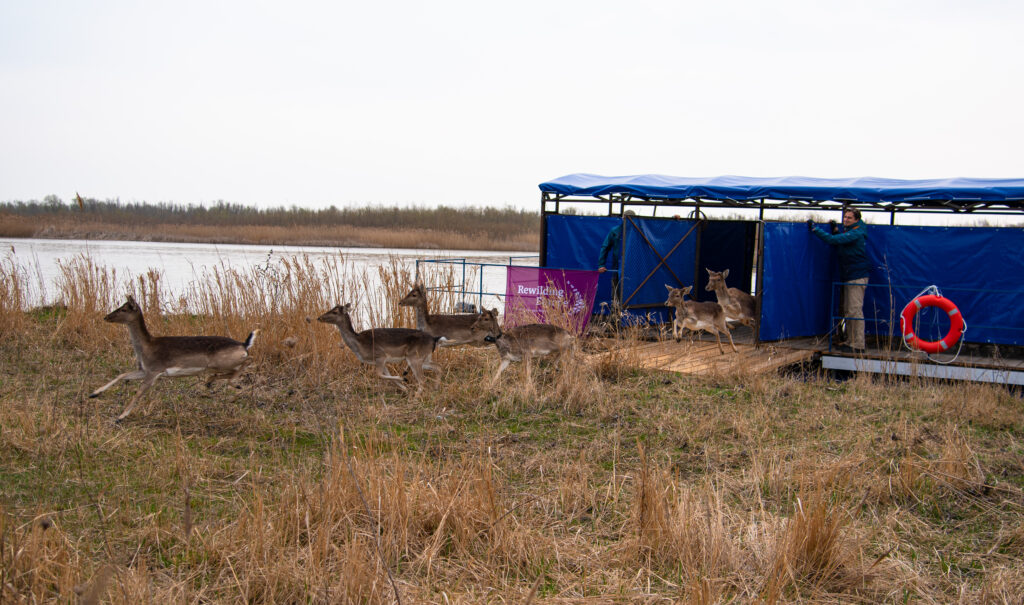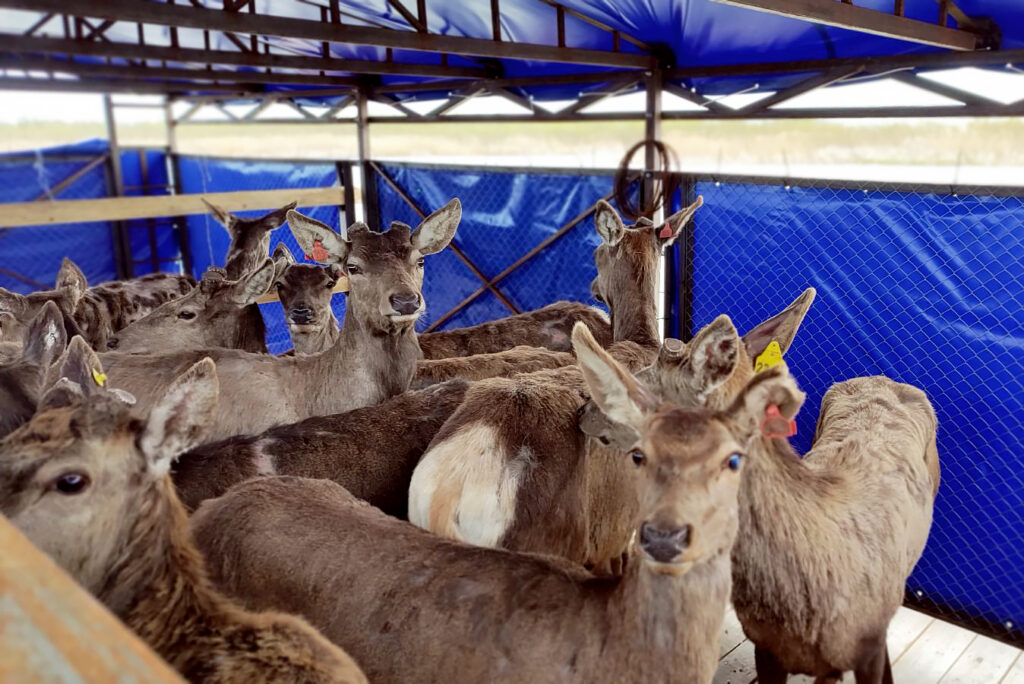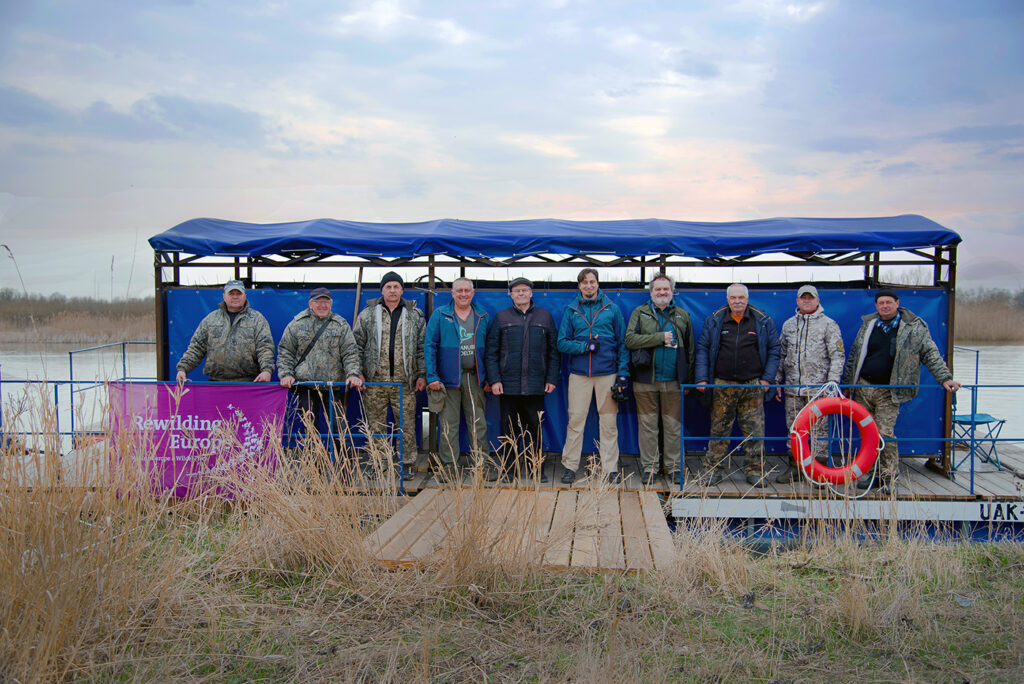20 fallow deer and 20 red deer were just released on Bilgorodskiy Island in the Ukrainian part of the Danube Delta by Rewilding Ukraine and the Danube Biosphere Reserve. The release was funded by a grant from Rewilding Europe’s European Wildlife Comeback Fund.

Wide-ranging benefits
Bilgorodskiy Island is a large island of around 2200 hectares located in the heart of the Ukrainian Danube Delta, where the delta meets the Black Sea. It is part of the Danube Biosphere Reserve that actively supported the release.
“The deer on Bilgorodskiy will help to create a biodiversity-rich, half-open mosaic landscape through their grazing and browsing, with meadows, pools and a diverse range of plants,” explains Oleg Dyakov, Rewilding officer at Rewilding Ukraine. “They will also eat excess vegetation that is susceptible to wildfire, which is a growing problem associated with climate change. We are going to track the deer and create exclusion areas to determine the exact ecological impact of the animals on the landscape.”
In recent years the Rewilding Ukraine team together with partners have already released water buffalo, Konik horses, some red deer and fallow deer on 2300-hectare Ermakiv Island, as part of a program to enhance natural grazing across the delta. As fallow and red deer are excellent swimmers, they have already begun to move to neighbouring islands, even on the Romanian territory of the delta, in search of food. It is expected that this new release at Bilgorodskiy Island will contribute to the faster formation of sustainable populations of the European fallow deer and red deer in the Danube Delta. Further releases are also planned in the future.

Long way to the delta
Fallow and red deer released in the Danube Delta came from the West of Ukraine, covering a distance of about 1000 km to settle in their new home. Now it’s a good time for their transport, outside the rooting season and the period, when females give birth to babies. All the animals feel good and healthy after the long road. They immediately jumped out of the barge and started to investigate the island.
“It was not an easy release, taking into account all the restrictions of the war times but also the new and challenging experience of the construction of the barge, that transported the animals,” shares his thoughts Olexiy Pudovkin, Field officer at Rewilding Ukraine. “But we finally succeeded. And the barge will serve us many times to support future wildlife releases to the Ukrainian delta.”
Game-changing funding
A grant from Rewilding Europe’s European Wildlife Comeback Fund has enabled this deer release in the Ukrainian part of the Danube Delta rewilding landscape. Half of the funds were used to purchase the animals, and the remainder to construct a self-propelled barge to transport them to the island, and to buy radio collars. This is the second wildlife release to be supported through the fund – a few weeks ago two European lynx were released in northwest Poland.
“The fast and easy grant application process was a game-changer in terms of this release,” says Mykhailo Nesterenko, Executive Director of Rewilding Ukraine team. “As the deer acclimatise and their population grows, they will have an increasingly positive impact on biodiversity on the island, and on neighbouring islands, as they spread out across the delta.”

Scaling up wildlife comeback
Wildlife reintroductions are complex, which means they typically face many challenges and take a long time to prepare. This often makes it difficult to synchronise the timing of available funding with the timing of the eventual release. The agile setup of the European Wildlife Comeback Fund is designed to support wildlife comeback in Europe by enabling reintroductions in a proactive and flexible way, following IUCN guidelines. The fund has already received 1.5 million euros from partners, and aims to facilitate at least 30 wildlife comeback interventions or initiatives over the next couple of years.
Rewilding Europe invites other initiatives working to reintroduce keystone species in European landscapes to consider applying for an European Wildlife Comeback Fund grant.